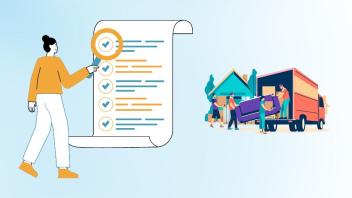Navigating Health Services in a New City: A Guide for an Outsider

Moving to a new city is indeed a thrilling adventure that comes with the promise of new opportunities and experiences. But amidst all the excitement and anticipation, one critical aspect that often takes a backseat is familiarizing ourselves with the health services in our new environment. Yet, it is an aspect that couldn't be more essential. After all, staying hale and hearty is the key to making the most of our new surroundings.
How to Find Healthcare Providers in Your New City
Research Online & Offline
Digging into the internet is a good starting point. Look for hospitals or clinics near your new residence. Check their reviews and ratings on platforms like Google and Practo.
Talk to your neighbours, colleagues, or college mates. Personal recommendations can often lead you to trustworthy doctors and medical facilities.
Use Healthcare Apps (Telemedicine)
Telemedicine is like a bridge connecting you and healthcare, no matter where you are. It can be particularly useful when you need to consult a specialist who may not be available in your city, for second opinions, or for routine follow-ups where a physical examination isn't necessary.
With these apps, you can consult doctors, receive a diagnosis, get prescriptions, and follow-up from the comfort of your home. You can also get the doctor's details like qualifications and years of experience, read reviews from other patients, book an appointment, and even have an online consultation.
- Apps like Apollo, Practo, Pristyn Care, Credihealth, etc., help to get in touch with doctors for any health problems (e.g., dentist, psychologist, dermatologist, etc.).
- Apps like 1mg or PharmEasy can be used to order medicines and health products and get them delivered to your doorstep within few minutes.
- Apps like Lybrate offer a platform to ask health-related questions to doctors.
Additionally, there are fitness apps that can connect you to local gyms, yoga centers, or personal trainers. Some apps even provide nutritional advice and track your health goals.
Find a Primary Care Physician
A Primary Care Physician knows your medical history, can guide you when you're unwell, and refer you to specialists when needed.
While choosing a PCP, consider factors like their area of expertise (you can opt for a family physician, an internal medicine doctor, or a general practitioner), the languages they speak, their clinic's proximity to your home or workplace, and their availability.
Also, check whether the doctor is covered under your health insurance plan to avoid any surprises later.
Meet the Physician Before Finalizing
Once you have a few options, schedule an appointment for an initial consultation.
During this meeting, evaluate aspects like the doctor's approach to healthcare (are they quick to prescribe medications or do they recommend lifestyle modifications first?), how well they listen to your concerns, how clearly they explain your health issues, and how rushed or relaxed the appointment feels.
This is an opportunity to assess your comfort level with the doctor. After all, a good patient-doctor relationship goes beyond just medical qualifications and comes down to how well you can communicate with each other.
How to Prepare for Healthcare in New City before Moving
Transfer Medical Records
Before leaving your current city, ask your doctor or hospital for a digital copy of your medical history. Once you find a healthcare provider in your new city, you can share these records with them.
Some hospitals have a centralized database, which makes this transfer even easier. But remember, this is sensitive information - ensure you're sharing it over a secure platform.
Understand the Local Healthcare System
India, with its diversity, presents a unique blend of public and private health services, each having its pros and cons. It's ideal to know about the local healthcare system of the city you're moving to, so that you are not caught off guard at the last minute.
Public Health Services
It is primarily government-led and is often the go-to for many due to its affordability. Public hospitals and clinics like AIIMS in Delhi, or KEM Hospital in Mumbai, provide a wide range of services, from primary care to specialized treatments. However, they may be characterized by long waiting periods and sometimes, crowded facilities due to high demand.
Private Health Services
On the other hand, we have private health services that boast state-of-the-art facilities, quick service, and personalized care. Private hospitals such as Fortis, Apollo, and Max Healthcare, are examples of this sector. They often have multiple branches across the city, making them easily accessible. The trade-off, though, is the higher cost compared to public services.
Also read: After relocation essential steps for health.
Understand Local Health Policies and Patient Rights
Finally, take some time to understand local health policies and patient rights. India has various acts and provisions to protect patient rights, like the right to informed consent, the right to emergency medical care, and the right to patient education. Familiarizing yourself with these can be instrumental in ensuring you receive appropriate and respectful care.
Let's illustrate this with an example. Imagine you've moved to Bengaluru, and you're not fluent in Kannada. You should know that as per the Charter of Patient Rights by the National Human Rights Commission, you have the right to receive information in a language you understand. This ensures that language barriers don't impede your healthcare.
Understand How Emergency Services Work in the New City
In India, each city has its own system of emergency services. Generally, it consists of ambulance services, emergency rooms at hospitals, and sometimes, specialized trauma and emergency centers.
In case of a medical emergency, you can dial the pan-India helpline number 112. In addition, some cities have specific numbers for ambulance services. For instance, in Delhi, you can call 102 or CATS (Centralised Accident & Trauma Services) at 1099 for an ambulance.
Find Out About Nearby Hospitals and Their Emergency Protocols
To better prepare, research hospitals near your home that have 24/7 emergency rooms. Make a note of their contact numbers and address. Some hospitals in larger cities, like Fortis in Delhi or Apollo in Chennai, have emergency departments equipped to handle a wide range of emergencies, from heart attacks to road accidents.
Also, understand the protocols for emergencies. For example, some hospitals may require immediate payment or a deposit. Knowing these details beforehand can save crucial time during an emergency.
Prepare for an Emergency: What to Have and What to Know
Just as you keep a fire extinguisher at home hoping you'll never need to use it, there are a few things to keep handy in case of a medical emergency:
-
Emergency contact numbers: Include numbers of nearby hospitals, ambulance services, your primary care physician, and a few friends or relatives who can be reached quickly.
-
Basic first aid kit: Keep a kit with bandages, antiseptics, pain relievers, and any necessary prescription medicines at home and in your office.
-
Health insurance details: In case you have health insurance, keep a copy of the card or document with you. Make sure a family member or close friend knows where to find these details if needed.
-
Medical history and allergy information: A written note or a digital document with your medical history and records
Moving to a new city, like shifting from the sandy beaches of Goa to the tech city of Bangalore, is like starting a new chapter in your life. There will be new experiences, new friends, and new routines. And just like any good story, this chapter also needs a healthy protagonist - you.
As you pack your bags, bid goodbye to your old home, and step into a new adventure, remember to keep health on your priority list. A new city offers a chance for a fresh start, and it's the perfect opportunity to take control of your health and wellness. We hope this guide helps you in this journey and makes your new city feel a little more like home.
So, cheers to a new city, new beginnings, and a healthier you. Happy settling in, and remember - health first!











